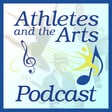
#circuslife! with Dr Stephanie Greenspan and Shenea Stiletto
Yasi and Steven into the fascinating world of circus performance and how a movement is taking shape to help protect performers in the industry. With us today is Dr. Stephanie Greenspan, a performing arts physical therapist, the chair for the surveillance of injuries for research on Circus working group and co-editor of the sciences section for the journal, circus arts, life, and sciences. She also created the concept of Artletic science in 2021. Also joining us is Shenea Stiletto, a Two-Time world champion acrobatic gymnast, a Cirque du Soleil performer and Founder of the Circus Arts Guild of America.
For more information on performing arts medicine, go to https://athletesandthearts.com
For more about Shenea, go to https://circuspreneur.com/author/sheneastiletto/
Shenea's social media: FB: https://www.facebook.com/sheneabooth?_rdr. Instagram: https://www.instagram.com/sheneastiletto/?hl=en
Find Dr Greenspan at https://www.linkedin.com/in/stephanie-greenspan-dpt/
Bios:
Dr. Stephanie Greenspan is a performing arts physical therapist with post-graduate residency and fellowship training and board specialties in orthopaedic and neurologic physical therapy. As an Adjunct Associate Professor at Samuel Merritt University, she studies injuries in circus artists and 3D motion in aerialists. She chairs the Surveillance of Injuries for Research on Circus (SIRC) working group that created a consensus statement for injury surveillance in circus and a guideline for concussion management in the circus arts. She is also co-editor of the Sciences section for the journal Circus Arts, Life and Sciences. She founded Artletic Science in 2021 with the mission to enhance the health and performance of artist athletes through research, education, and physical therapy. As a clinician, she works with recreational to professional circus artists and dancers with a focus on decreasing injury risk and optimizing performance.
Shenea Stiletto is a former Two-Time World Champion AcrobaticGymnast , USA Gymnastics Hall of Fame Member, Survivor of USA Gymnastics, Honorary Olympian for 2 Olympic Tours, SAG Stunt Woman, and a World Class Circus Handbalancer inducted into the World Acrobatic Hall of Fame, who has performed with elite entertainment companies worldwide. Shenea’s career highlights have included performing the lead character and acrobatic role in a Cirque Du Soleil production, in which she performed in Varekai as The Promise character.
Most recently, Shenea toured with Cirque Du Soleil’s newest production SongBlazers, and is the face of Cirque Du Soleil’s first ever Wine Brand Collaboration with StagsLeap Winery. Shenea Stiletto is also a circus trainer, educator, and circus advocate as Founder of for the Circus Arts Guild of America. The Circus Arts Guild of America was the strategic partner for the historic Circus Arts Industry Roundtable at the White House in 2024. The White House Roundtable in discussion with the Department of Labor, included panel representation from the National Endowment for the Arts, OSHA, U.S Center for SafeSport, Actors Equity, American Musical Artists Guild of America, and Circus Arts Industry Advocates.
Additionally, Shenea Stiletto is also a lead Contributor and Circus Analyst for StageLync.com, and hosts the popular Circuspreneur Podcast sponsored by StageLync.com.



